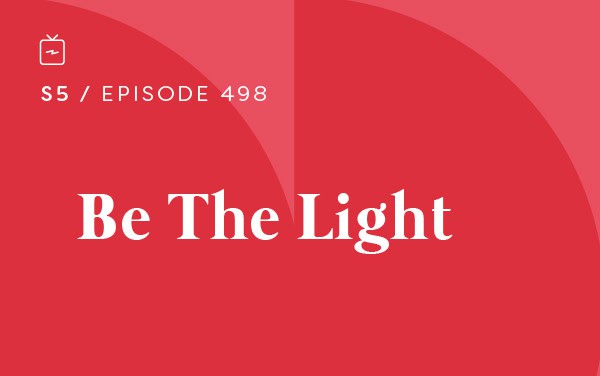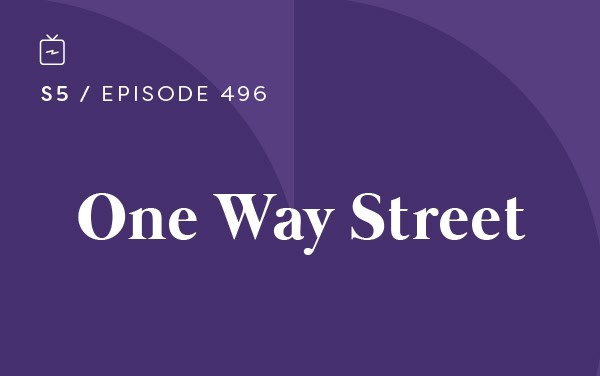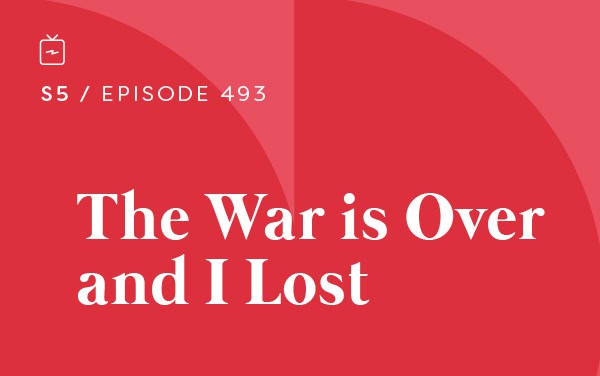
by Kris Oyen | Sep 16, 2024 | Podcast
Podcast: Play in new window | Download
Subscribe to the Recovery Elevator Podcast Apple Podcasts | | More
Episode 500 – I Am Here, I Am Whole
Today we have Brady. He is 43 years old from Denver, CO and took his last drink on July 18th, 2023.
Whatever day you are on, we want to hear it, see it and support you. On Sundays, head on over to RE on Instagram and post on our Roll Call. Let the world know where you are at.
There are still a few spots open on our next Alcohol-Free travel trip to Vietnam. This upcoming January 9th-20th, 2025, we’re heading to this incredible Southeast Asia paradise for 10 days and 11 nights with 25 travelers who are done nursing hangovers.
Starting Monday September 16th, all new registration for Café RE will be added to our community, which is no longer on Facebook. We have found a place that allows us to make these connections better. Beginning October 1st, all current members will start shifting over there as well.
Sponsors mentioned in this episode:
Better Help – code ELEVATOR
[03:57] Thoughts from Paul:
For 500 straight Mondays, Recovery Elevator has released an episode with someone sharing how they quit drinking. We do this to help, to serve, and also selfishly since Paul and all members of the team are also on this AF journey.
Paul started this podcast in 2015 and just celebrated 10 years since his last drink. He shares how he started the Recovery Elevator Sobriety Tracker. He also shares that since starting, we now have Café RE, have done five international sober travel trips, have had 15 official RE retreats, and over 1500 people have signed up for our courses.
Paul shares what he is most happy about are the gains in his personal life. He is married and has a three-month-old son and is well into a creating a life that no longer requires alcohol.
The lyrics to the new intro song: “I am here, I am whole” remind us that there is nothing wrong with us, we are not fractured, and we can correct the imbalance in our lives. And we don’t have to do it alone.
[11:00] Paul introduces Brady:
At the time of recording, Brady just celebrated one year alcohol free!
Paul and Brady have been friends for a very long time, and both acknowledge that it’s good be on the other side of their drinking times to now sharing sobriety with one another.
Brady and lives in the suburbs of Denver, he is 43 years old and is a realtor and formerly a high school teacher. Brady is married and they have a five-year-old son.
Brady says he drank more than the average high school student. He thinks his drinking in college was on par with normal for that time of life. It wasn’t until his late thirties that he started to realize that his relationship with alcohol wasn’t good. He feels that the time during COVID just normalized drinking at home for him. It became an everyday thing, and he slowly stopped having any interest in anything other than drinking.
An acute panic attack one night found him feeling empty. When he talked to his mom about it, she asked if he had been drinking. It was then that he started to connect the dots and was on the road to exploring the role alcohol had in his life. He never considered himself an alcoholic, but knew he was not living the life he wanted to.
Since quitting drinking, Brady has lost 20 pounds, is says he is more aware of what he is doing and it’s more purposeful. Brady has discovered that everything is clearer now. He mentions listening to The Huberman Lab podcast about alcohol really helped him in addition to Alan Carr’s book about quitting drinking. Learning what alcohol really does to us has been an important tool for Brady. He has not attended AA but had a lot of support from people around him and was comfortable sharing with them. Brady has shifted his identity to no longer being a dude that drinks.
Brady’s parting piece of guidance: just do it, find those resources that will help you.
Recovery Elevator
You took the elevator down, you got to take the stairs back up.
We can do this.
by Paul Churchill | Sep 14, 2024
Café RE is a private online unsearchable recovery community! Get accountable and be the best version of you. Get Accountable WHAT IS CAFÉ RE? Café RE is a community of like-minded individuals who are working together to achieve a new life without alcohol. Quitting...

by Kris Oyen | Sep 2, 2024 | Podcast
Podcast: Play in new window | Download
Subscribe to the Recovery Elevator Podcast Apple Podcasts | | More
Episode 498 – Be the Light
Today we have Ava. She is 17 years old and lives in Central North Dakota. She has been sober since October 13th, 2006.
Sponsors for this episode:
Visit Better Help today to get 10% off your first month
[03:16] Meat and Potatoes Time:
A few months ago, after a lot of prayer and consideration, Kris had a tough call with Paul. While he enjoys his job as podcast host immensely, his life has been changing. His kids are getting older and busier, and he has opportunities to step up his investment in his local community.
Kris shares what this podcast has meant to him both as an interviewer and as a long-time listener. All of our stories have values, and he reminds us of the importance of being a light. No one lights a lamp and then covers it with a wash tub or shoves it under a bed. You set it up on the lampstand so that those who enter the room can see their way.
We each have a light in us that is meant to shine.
[10:18] Kris introduces Ava:
Today Kris is speaking with a very special guest: Ava, his 17-year-old daughter. She works as a nanny and works front desk at a gym. For fun, Ava likes to read and spend time with her friends.
Ava shares that the first time she became aware of alcohol’s presence in her life was when she was around ten. She noticed that her dad always had beer. She didn’t recognize that alcohol was causing a problem in her environment until her parents separated, Dad went to rehab, and they explained things to her.
Anxiety was common for Ava during this time. Her mom and dad were fighting a lot, and weren’t very present at home, and she found herself looking after her little brother more and more. Ava didn’t feel like she had an outlet to share her feelings. She was left feeling like she wasn’t good enough and trying to be a people pleaser and take care of others.
Ava remembers the last years of Kris drinking as being hard. She had been told that her dad was staying at the lake because it was closer to his work. She didn’t realize what was going on until she heard her mother on the phone talking about a divorce. Ava says that was hard to hear. Her parents were trying to protect the kids from what was going on. Ava says that this was a very difficult time for her. Her anxiety was up, and she started internalizing that she was the problem for her parents
Going through the transition to middle school was a hard time for Ava. Her anxiety had increased, and she tried really hard to make things go right there since she felt so much instability at home. She was crushed when she and her brother were told their parents were separating.
Kris started rehab and was spending as much time with the kids as possible. Time together helped them rebuild a healthy relationship. Ava says some of the anxiety went away and when it comes up for her now, she knows how to deal with it.
These days Ava enjoys the time they all spend together as a family. She feels much more comfortable and open with her parents now that things are calmer at home. Having a relationship with God and friends at church and school has been helpful for Ava.
Ava looks forward to graduating high school and plans to become a counselor. She has the desire to help people who are going through some of the things she has and mental health in general.
Ava’s advice for folks going through tough times: taking it one step at a time, it doesn’t have to be a big light-switch change
Ava’s parting piece of guidance for those thinking about sobriety: do it. It is probably the best choice you can make for yourself and those around you.
Ava’s advice for a loved one of someone with addiction: know that they are loved and valuable and would encourage them to find someone they trust that they can talk to because they are not alone.
Recovery Elevator
You’re the only one that can do this, but you don’t have to do it alone.
Love you guys.
RE on Instagram
RE merch
Recovery Elevator YouTube
Sobriety Tracker iTunes

by Kris Oyen | Aug 19, 2024 | Podcast
Podcast: Play in new window | Download
Subscribe to the Recovery Elevator Podcast Apple Podcasts | | More
Episode 496 – One Way Street
Today we have James. He is 40 years old and lives in Melbourne, Australia. He took his last drink on November 20th, 2023.
Sponsors for this episode:
Visit Better Help today to get 10% off your first month
Visit Exact Nature use code RE20 to save 20% off of your order
[04:16] Thoughts from Paul:
The Paris Olympic Committee opted to not sell alcohol. They were confident that they could have successfully applied to sell alcohol but still decided not to. In an article from NBC News, it mentioned the following: “While many people enjoy a casual drink, that’s not always the case. According to estimates by the French Public Health Society, 49,000 people are killed a year by alcohol consumption, which also causes 120 billion euros in damages.” Them choosing not to sell alcohol proves that things are changing around the globe regarding alcohol consumption.
Expanding on the topic of staying the course from last week’s episode, Paul shares that sobriety is a one-way street. He has yet to hear a story where someone with alcohol-free has gone back to drinking and was happy with the decision.
The common theme when it comes to what drove them back to alcohol was that they drifted from the AF community and attended less meetings or stopped altogether. They second part of this is they all said it was not a pleasant experience and many ended up right back where they were.
Do not beat yourself if you do some field research. We often need those reminders to reinforce internally that you made the right decision. Paul says he hasn’t met a single person who said they made the wrong choice when they decided to choose an alcohol-free life.
[11:03] Kris introduces James:
James lives in a rural area south of Melbourne, Australia. He is married with two kids, enjoys going to the gym and recently started playing football again.
James says he had a normal upbringing. He put a lot of pressure on himself and felt like he was always being watched. Alcohol entered his life when he was around 14 and drinking helped him turn things off as an escape and he felt freedom.
At 18, James moved out of his parent’s home with some older friends and was drinking on extended weekends but still very functional. When he was 20, he ended up moving to London where he felt complete freedom to do whatever he wanted, including living in a pub. James continued the weekend binge drinking with very little consequence.
After moving back to Australia in his late 20’s, James started a successful business and met the woman who is now his wife. Over time his feelings of not being “good enough” in many areas of his life were very stressful and found James drinking more to self-medicate and disconnect.
Towards the end of his drinking, James says he and his wife were very disconnected. He was acting out and taking a lot of risks. After confronting him one day, James told her his life was a mess and she told him it was either rehab or leaving. James opted for the easier option of leaving and chose an Airbnb close to a pub where he could drink and gamble. After a few days of this bender, his wife showed up and lovingly took him home. He started doing research but was scared to commit to inpatient care due to running his business.
James eventually found an outpatient treatment that would suit him. He has been alcohol-free ever since. Working on his connections with his family is something James is really proud of. He looks forward to doing the step work with his sponsor in AA and growing stronger spiritually.
James’ biggest fear around quitting: feeling his feelings and having to digest them.
James’ favorite resources in recovery: Recovery Elevator podcast and a book with spiritual principles for each day that he can meditate on.
James’ parting piece of guidance: Stick to it, keep showing up day by day and the magic happens down the track.
We are the only ones that can do this RE, but we don’t have to do it alone.
I love you guys.
Recovery Elevator YouTube
Sobriety Tracker iTunes

by Kris Oyen | Jul 29, 2024 | Podcast
Podcast: Play in new window | Download
Subscribe to the Recovery Elevator Podcast Apple Podcasts | | More
Episode 493 – The War is Over, and I Lost
Today we have Allie. She is 31 and lives in Central, MA. She took her last drink on March 20th, 2024.
There are still a few spots open on our next Alcohol-Free travel trip to Vietnam. This upcoming January 9th-20th, 2025, we’re heading to this incredible Southeast Asia paradise for 10 days and 11 nights with 25 travelers who are done nursing hangovers.
Sponsors for this episode:
Visit Better Help today to get 10% off your first month
Exact Nature use promo code RE20 to receive 20% of your order
[03:25] Thoughts from Paul:
Paul shares that he lost the war with alcohol. It was not for lack of effort… for over ten years, he would get back up and keep fighting, he would implement new strategies to control his drinking, but it didn’t matter. He still lost.
He eventually raised the white flag and through the process of deconstruction, Paul says humility entered on its own without invitation. Every day he has to remember just how bad he got his ass kicked.
Through the addiction process, humility is a gift that we receive. Humility is a modest view of one’s own self-worth or importance and addiction is the equalizer that puts us all on the same level.
Losing the battle with alcohol is a humbling process which imprints on us a heaping dose of humility, which never leaves.
A big part of today’s intro is empowering you to recognize this incredible gift.
Once the battle with alcohol is over and humility is gained, we ultimately win.
[10:38] Paul introduces Allie:
Allie is 31 years old, and currently lives in central Massachusetts. She is married and they recently bought a house. For work she is an occupational therapist for students with different learning disabilities. For fun she enjoys the beach, travel, reading and exercise.
Allie started experimenting with alcohol in high school – the typical parties on the weekend. Her parents were big advocates for safety around alcohol and knew that Allie and her brother were at the age of experimentation. Allie knew family members that had issues with alcohol but wasn’t worried about them developing for herself.
After college, Allie moved to Boston and started to work. She says she enjoyed the social scene. Initially she didn’t drink during the week but on the weekends the excitement of being with friends found her trying to keep the party going when others were fine to stop.
During COVID Allie and her friends would have happy hours over Zoom. Around 2022 was when she first heard the term “sober curious” but said the word “sober” scared her. Allie shares that she had times when she knew she had drank too much and felt some shame and guilt around it. This led her to start listening to podcasts about sobriety and hear stories from others that felt the same way. Allie found listening to other people her age quitting drinking was really motivating and helpful for her to realize she wasn’t alone.
Because she wasn’t an everyday drinker, she didn’t think she had a problem. She would attempt moderation by limiting her drinks and avoiding certain alcohol. Allie quit drinking for stretches of time, but usually because of diet or an upcoming event. It wasn’t until one night of overindulgence led to worrying her father when she realized that she needed to quit.
Since quitting, Allie listens to a lot of podcasts, attends therapy and journals regularly to reflect on where she is. Learning about the science has been very helpful to her and she has fostered a great relationship with herself while improving relationships with others. Self-discovery, self-acceptance and self-awareness have helped Allie realize that she is just someone that cannot drink.
Recovery Elevator
You took the elevator down; you gotta take the stairs back up.
I love you guys.
RE on Instagram
RE merch
Recovery Elevator YouTube
Sobriety Tracker iTunes






